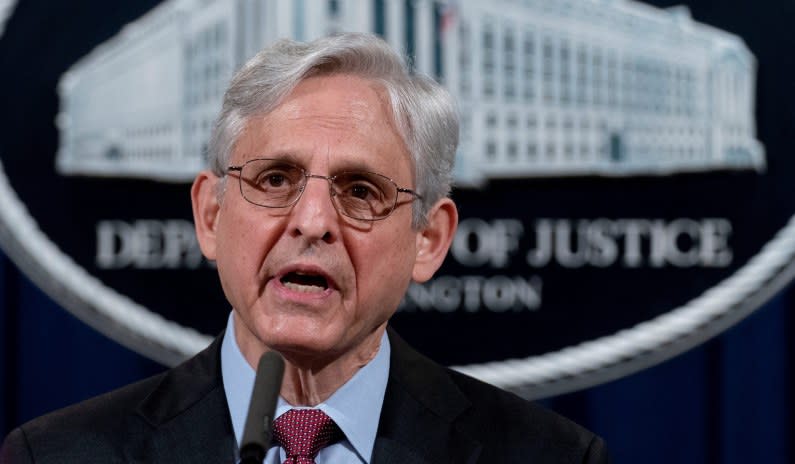Attorney General Merrick Garland Suspends Federal Executions

- Oops!Something went wrong.Please try again later.
- Oops!Something went wrong.Please try again later.
Attorney General Merrick Garland suspended scheduling of federal executions Thursday, pending further review of the lethal-injection protocol by which a single drug is administered to recipients.
In a directive to senior officials, he said new considerations have been introduced into the debate about capital punishment, such as the fact that minorities account for a disproportionate number of death penalty sentences and “the troubling number of exonerations,” referring to cases when the conviction for a crime is reversed.
“The Department of Justice must ensure that everyone in the federal criminal justice system is not only afforded the rights guaranteed by the Constitution and laws of the United States but is also treated fairly and humanely,” he said.
After nearly a two-decade pause in federal executions, Attorney General William Barr resumed the death penalty in 2019 under the Trump administration, citing the need to carry out the sentences the justice system prescribes for the most serious offenders.
Garland ordered the Bureau of Prisons to stop using the lethal-injection method while it undergoes a review. He also noted that the Department of Justice (DOJ) would re-examine a Trump-era rule that permitted federal prisons to conduct executions in the manner directed by the state.
Garland’s decision comes after the Supreme Court granted review to an appeal filed by the Justice Department over a First Circuit Court ruling vacating the death penalty imposed on Dzhokhar Tsarnaev, the convicted Boston Marathon bomber.
The attorney general’s Thursday memo did not specify whether the federal government would continue to pursue the death sentence in criminal cases, therefore leaving unchanged the state of the DOJ’s petition to preserve the capital punishment assigned to Tsarnaev.
However, some legal scholars have questioned whether Garland would drop the appeal. While the Supreme Court has agreed to consider the case, it has not released a timeline for when it will add it to the docket.

